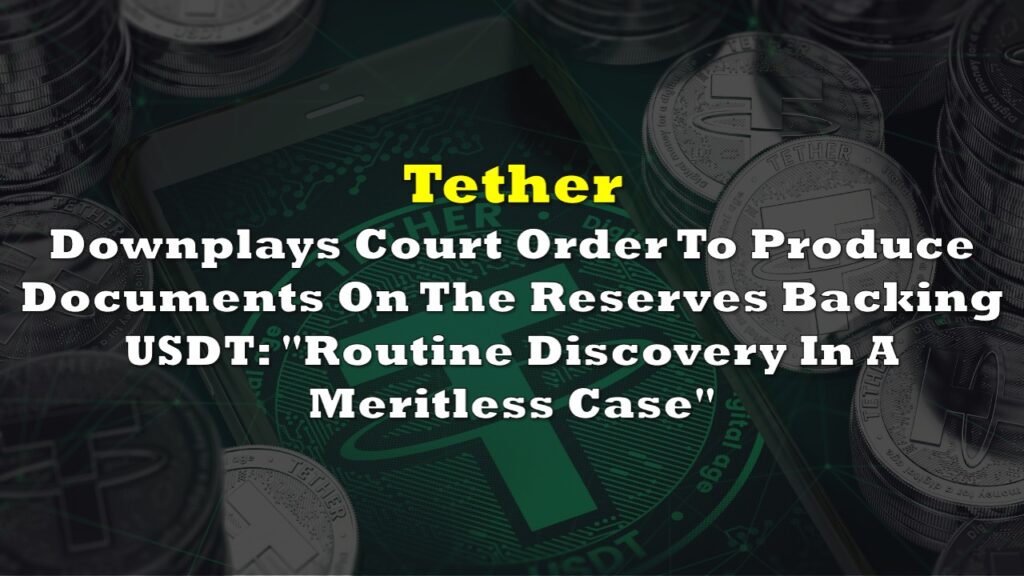Relief echoed through a federal courtroom this week as 30 shareholders in a small, rural bank devastated by an embezzlement scandal learned that they would recover their stolen funds, thanks to a recent FBI breakthrough. The funds, totaling $8.3 million, were recovered from a cryptocurrency account held by Tether Ltd. in the Cayman Islands, marking the latest chapter in the dramatic downfall of Shan Hanes, a former Kansas bank CEO entangled in a cryptocurrency scam.
Hanes, the former chief executive of Heartland Tri-State Bank in Elkhart, Kansas, shocked his tight-knit community when he was revealed as the orchestrator of an embezzlement scheme that drained the bank of $47 million. Sentenced to 24 years in prison in August, Hanes confessed to wiring customer funds to what he believed were cryptocurrency investments.
On Monday, U.S. District Judge John W. Broomes informed the 30 shareholders that the FBI had managed to recover the $8.3 million they believed was lost forever. The revelation brought many of them to tears, as they had long since abandoned hope of recovering their investments, which had been earmarked for retirements, eldercare, and children’s education funds.
“I just can’t describe the weight lifted off of us,” said Bart Camilli, a 70-year-old retiree who discovered he’d be getting back nearly $450,000. “It’s life-changing.”
Federal prosecutors have described Hanes’ involvement in a type of cryptocurrency scam known as “pig butchering.” In this scheme, scammers cultivate a relationship with their target over time, building trust before convincing them to invest substantial sums in what they are led to believe are lucrative cryptocurrency investments. Once the victim is fully “fattened,” or invested, the funds disappear into the scammer’s hands, leaving the victim with nothing.
Hanes reportedly fell prey to such a scheme in late 2022 after being contacted by a scammer on WhatsApp. What started as a modest $5,000 investment quickly snowballed, eventually escalating to the point where Hanes siphoned off nearly $47.1 million from bank accounts in a desperate attempt to “cash out” on what he thought were his earnings. Prosecutors noted that Hanes had observed, via a fabricated website, what appeared to be the steady growth of his investments, believing his holdings had reached over $200 million.
Hanes’ attorney, John Stang, explained, “He was to take some of the money, and the rest of the money was supposed to go back to the bank. Now it’s fiction, it didn’t exist. We all know that now … It failed big time.”
Heartland Tri-State Bank, a community-owned bank in a town of just 2,000, went under due to Hanes’ actions. The Federal Deposit Insurance Corporation (FDIC) intervened to insure the $47.1 million in customer deposits, reimbursing affected account holders in full. However, the FDIC’s insurance did not cover the bank’s shareholders, who faced a total loss of their investments until Monday’s surprising announcement of the fund recovery.
During Hanes’ sentencing hearing, victims openly expressed their anger and sense of betrayal. Some called him “pure evil” and “a deceitful cheat and liar,” labeling his actions as beyond forgiveness.
Margaret Grice, a shareholder who expected a minimal recovery of her 401(k), was stunned to learn she would be reimbursed nearly $250,000. “I’m just really thrilled,” Grice said. “I can breathe.”
Before his downfall, Hanes was more than a local banker. He was a respected figure in Kansas banking circles, known for his involvement in the Kansas Bankers Association and his testimony before Congress on issues affecting rural banking. His influence extended beyond his community, which only deepened the shock and betrayal when his crimes came to light. Investigators with the Federal Reserve System found that Hanes’ local prominence made it easy for him to exploit the trust placed in him, ultimately leading to financial ruin for dozens of shareholders.
Hanes also took advantage of his position to siphon money from multiple sources beyond bank customers. Prosecutors reported that he embezzled $40,000 from his church, $10,000 from an investment club, and $60,000 from his daughter’s college fund, all of which he lost to the cryptocurrency scam.
Known for its lenient regulatory environment and financial privacy laws, the Cayman Islands has long been a destination for individuals seeking to shield assets from scrutiny. By using a cryptocurrency account held by Tether Ltd., a stablecoin company registered in the Caymans, Hanes and the scammers he communicated with effectively placed millions beyond immediate reach—at least, until U.S. authorities intervened.
"The FBI recovered the funds from a cryptocurrency account held by Tether Ltd. in the Cayman Islands." https://t.co/aBnw9oc1Xm pic.twitter.com/OCJ4wxGWRi
— ⚯ M Cryptadamus ⚯ | @cryptadamist@universeodon.com (@Cryptadamist) November 5, 2024
The FDIC, having reimbursed customers’ lost deposits, sought compensation from the recovered funds. However, Judge Broomes ruled that the remaining shareholders, many of whom faced severe financial hardship due to Hanes’ actions, should be reimbursed first. Judge Broomes emphasized that the shareholders’ economic plight, caused directly by Hanes’ criminal actions, warranted this priority.
Hanes, now 53, is expected to serve most of his 24-year sentence and will likely be in his late 70s before he is eligible for release. Given the scale of the losses and his limited future earning potential, it is unlikely that the FDIC will ever recover the full $47.1 million from him.
In a previous court hearing, Hanes issued a public apology, though it fell flat for many of his victims who saw him as not merely a victim of a scam, but a willing participant who crossed ethical and legal lines by embezzling funds entrusted to him.
“From the deepest depth of my soul, I had no intention of ever causing the harm that I did,” Hanes said. “I’ll forever struggle to understand how I was duped and how what I thought was just getting the money back was making it worse.”
The Hanes case has highlighted the growing prevalence of cryptocurrency “pig butchering” scams, which have increasingly targeted American investors, especially in recent years. U.S. and international law enforcement agencies report a rising number of these schemes, many originating in Southeast Asia, where scam syndicates are capitalizing on the allure of quick profits in the crypto market.
These schemes often exploit individuals unfamiliar with cryptocurrency, leveraging sophisticated fake websites and persuasive scammers who build trust over time. Law enforcement agencies warn that these scams are expanding, with millions of dollars being siphoned from victims who are led to believe their investments are safe and profitable.
Information for this briefing was found via Fortune and the sources mentioned. The author has no securities or affiliations related to this organization. Not a recommendation to buy or sell. Always do additional research and consult a professional before purchasing a security. The author holds no licenses.









